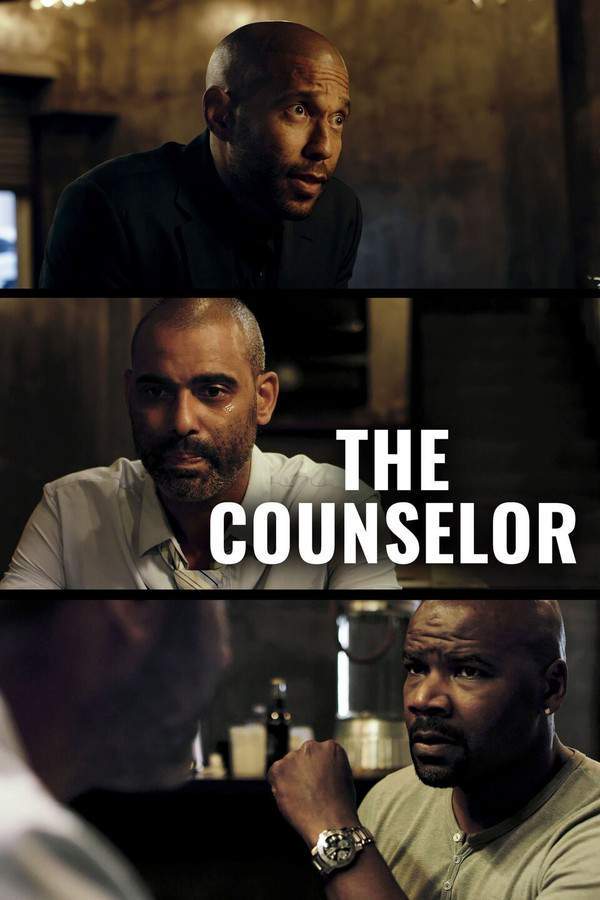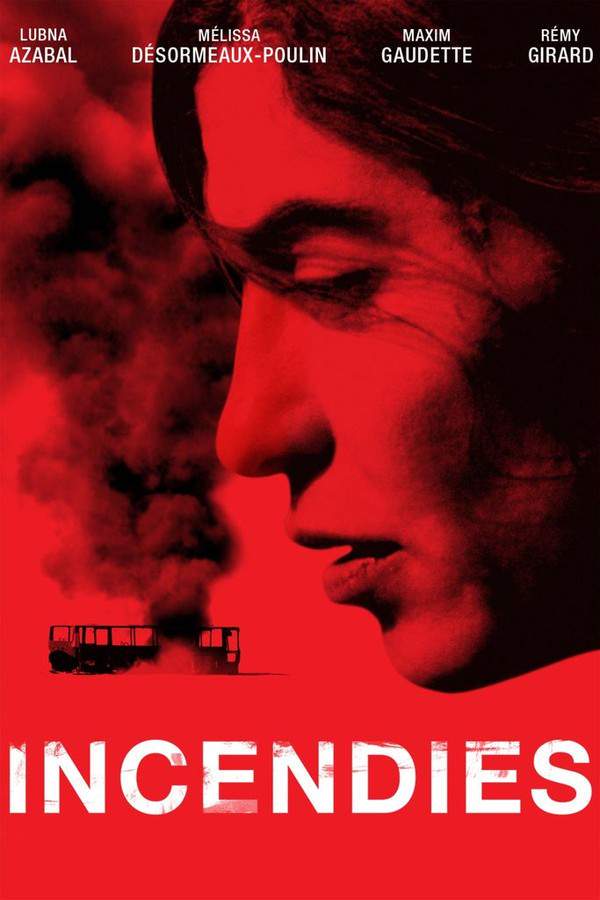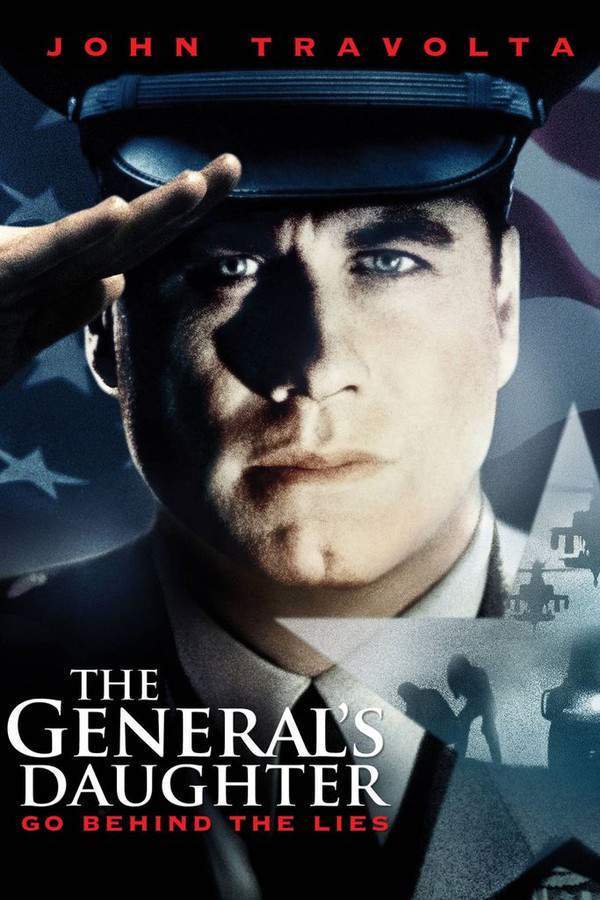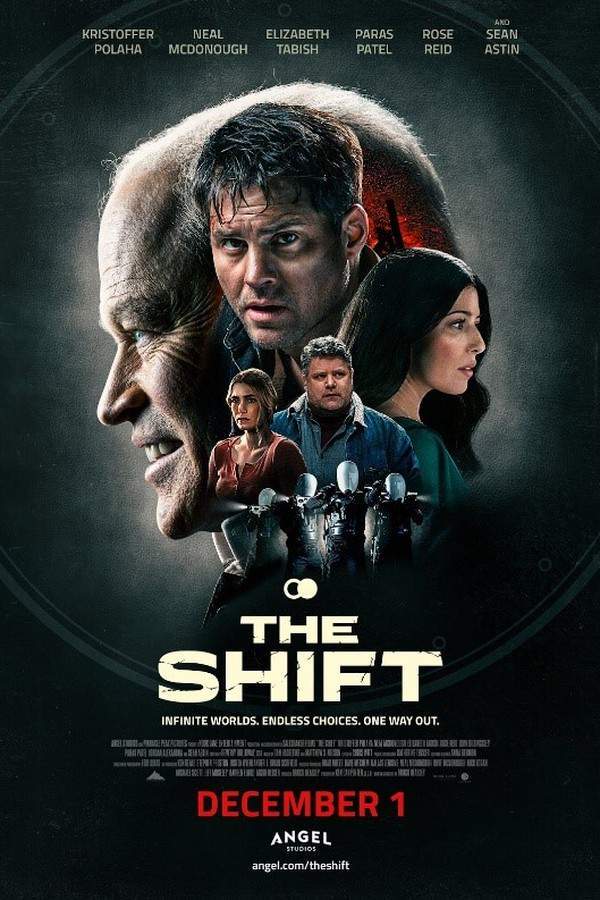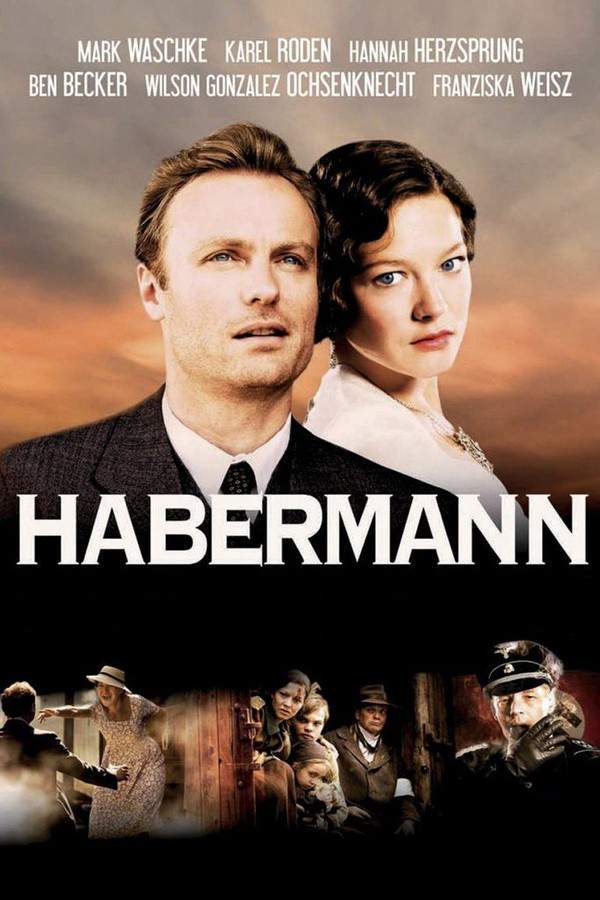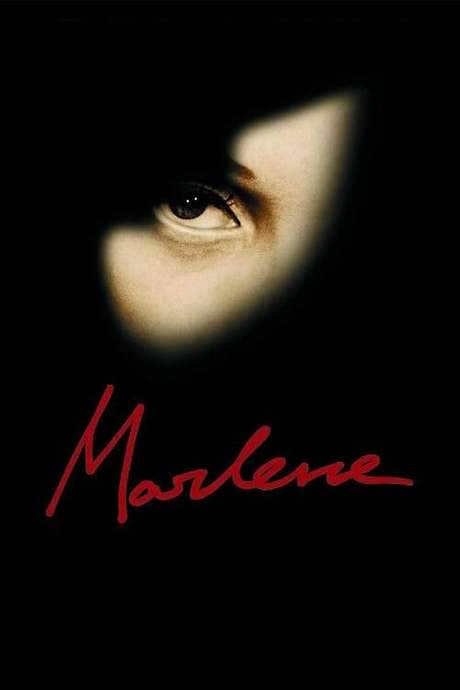
The Marriage of Maria Braun
Year: 1979
Runtime: 120 mins
Language: German
After marrying a young soldier in the final days of World II, Maria watches him disappear without a trace. Facing a shattered country and a future without her husband, she must depend on her striking beauty and fierce ambition to secure work, rebuild her life, and endure the harsh realities of the post‑war era on her own.
Warning: spoilers below!
Haven’t seen The Marriage of Maria Braun yet? This summary contains major spoilers. Bookmark the page, watch the movie, and come back for the full breakdown. If you're ready, scroll on and relive the story!
The Marriage of Maria Braun (1979) – Full Plot Summary & Ending Explained
Read the complete plot breakdown of The Marriage of Maria Braun (1979), including all key story events, major twists, and the ending explained in detail. Discover what really happened—and what it all means.
During an Allied bombing raid in 1943, Maria Hanna Schygulla Braun and Klaus Löwitsch Hermann Braun marry, sealing a fragile pact in the chaos of war. The very next day, Hermann returns to the Eastern front, and when the war ends the family learns he is presumed dead. Maria clings to the memory of Hermann as the country begins to fracture under the weight of defeat and economic hardship. The social and financial collapse that follows pushes her to seek means of survival within a broken system, where old loyalties dissolve and new opportunists rise.
The postwar economy in Germany is brutal, and Maria Hanna Schygulla Braun must scramble to keep a roof over her head and food on the table. She takes a job in a seedy underground bar catering to Allied soldiers, a choice that unsettles her conscience and unsettles those who once believed in her virtue. The bar’s owner pressures her for a medical certificate, hinting that the job involves sex work. This, in turn, unsettles her longtime doctor, Claus Holm, who witnesses the strain of witnessing women pushed into exploitation, a strain that contributes to his own descent into morphine addiction.
At the bar, Maria Hanna Schygulla Braun forms a connection with Bill, George Eagles, a Black American soldier who offers a path out of poverty but whose help comes with emotional and ethical costs. While her primary aim is financial security for her family, she rapidly discovers a reciprocal warmth in Bill’s company. Their relationship grows, and Maria becomes pregnant, intertwining their lives in a precarious, fragile hope. Yet reality intrudes when Hermann is unexpectedly released from a Soviet POW camp and discovers Bill in bed with Maria. The moment shatters him; Maria rushes to explain, but he lashes out in anger, and Bill retaliates with violence. In a desperate bid to stop a fight, Maria smashes a beer bottle over Bill’s head, killing him. The consequences ripple outward as Hermann, determined to shield Maria, takes the fall for the murder and is sent to prison. The couple’s dreams fracture once again when their baby is stillborn, underscoring the personal cost of their entangled lives.
On the way home from the doctor, Maria Hanna Schygulla Braun seduces a train conductor to gain access to a first-class car, and there she encounters a wealthy passenger, Ivan Desny Karl Oswald, a textile industrialist. Oswald sees in Maria a shrewd, ambitious mind with a keen eye for opportunity, and he offers her a job as his personal advisor. This encounter marks a turning point: Maria’s future shifts from private heartbreak to high-stakes business strategy, and she begins to navigate powerful corridors of power with a mix of charm and willful ruthlessness.
Back in her apartment, Maria tells her mother and roommates that she must move into her own place, a sign of her growing independence. Voiceover intercuts with archival footage of Konrad Adenauer publicly stating that West Germany will not rearm, signaling a tense, fragile balance between economic recovery and political caution. Maria’s path continues toward opportunity as she reveals to Hermann, through their complicated phone calls and whispered plans, that she has accepted a strategic role within Oswald’s empire. In prison, Hermann and Oswald meet without Maria’s knowledge, and Hermann is emotionally unsettled by the revelation of her new life. When Hermann is released, he emigrates to Canada, insisting that he still loves Maria and that they will reunite someday.
Maria purchases a large suburban home, a tone-deaf symbol of prosperity amid lingering scarcity. Yet the idyll is short-lived as Hermann disappears from the scene, and Maria’s behavior grows harsher, lashing out at the staff, family, and colleagues. Oswald dies a few years later, and a celebratory mood gives way to a darker period as Maria descends into a self-destructive streak. In the backdrop, Adenauer’s policy shift toward rearmament intensifies the national mood, and a restless energy animates Maria’s ambitions.
When Hermann unexpectedly returns on the day of West Germany’s 1954 World Cup Final against Hungary, the emotional chemistry between the two is strained to a breaking point. A gas stove fuels a tragedy: Maria lights a cigarette, and rather than turning off the flame, she permits a fatal gas leak to unfold. The resulting explosion claims both her life and Hermann’s, leaving the future ambiguous—Was it suicide, or a desperate accident born of despair? The will from Oswald emerges, revealing that while Maria anticipated inheriting a vast sum, she receives only half. Oswald reveals a condition: he promised the other half to Hermann if Hermann allowed the terminally ill Oswald to spend the rest of his life with Maria. The scene closes on the couple as the smoke billows, the two bodies found together, and Germany’s triumph on the field in the background.
Senkenberg, Oswald’s lawyer, arrives to read the will and to confront Maria with a stark reality: the fortune she counted on is not as she imagined. In the final, breathless moment, the death of the two lovers is left deliberately unresolved, a question left to the viewer’s interpretation, a symbol of the era’s moral ambiguity. The post-credits sequence presents a stark montage: ominous negatives of postwar West German Chancellors—Adenauer, Erhard, Kiesinger, and Schmidt—flicker across the screen, a reminder that every personal tragedy exists within a larger national drama.
-
Maria Hanna Schygulla Braun’s drive for security and status unfolds against a backdrop of economic collapse, shifting loyalties, and the uneasy tension of a society rebuilding itself. Her ascent is marked by a series of morally complex choices, many of which hinge on subduing emotion to embrace calculated risk. The film follows how a woman negotiates power through a mixture of seduction, strategic intellect, and practical endurance, weaving personal ambition into the fabric of a country trying to redefine itself after catastrophe.
-
Hermann [Klaus Löwitsch] Braun’s initial loyalty and later withdrawal illustrate the boundaries of trust in a postwar world where old attachments clash with new incentives. His willingness to bear the consequences of Maria’s decisions—and to pursue a future elsewhere—highlights the loneliness and dislocation at the heart of the era.
-
Karl Oswald [Ivan Desny] embodies the new order: wealth, influence, and the chance to shape a country’s future through commerce and leverage. Maria’s alliance with Oswald demonstrates how power can be negotiated through a blend of intellect and personal chemistry, with the dense web of lawyers, executives, and unions shaping the outcome of every choice.
-
The surrounding cast, including Rainer Werner Fassbinder as the Peddler, Hark Bohm as Senkenberg, Claus Holm as the Doctor, Isolde Barth as Vevi, Gottfried John as Willi Klenze, Günther Kaufmann as the American on Train, Elisabeth Trissenaar as Betti Klenze, Peter Berling as Bronski, Volker Spengler as the Train Conductor, Gisela Uhlen as Mother, Günter Lamprecht as Hans Wetzel, Lilo Pempeit as Frau Ehmke, Karl-Heinz von Hassel as Prosecuting Counsel, Sonja Neudorfer as Red Cross Nurse, Barbara Baum as (as Baum), Rolf Bührmann as Warden, Kristine De Loup as Notary, Hannes Kaetner as Justice of the Peace, George Eagles as Bill, Anton Schiersner as Grandpa Berger, Bruce Low as American at Conference, Georg Kuhn as Georg Kuhn, Horst-Dieter Klock as Gentleman with Car, Martin Häussler as Reporter, Norbert Scherer as Warden, Andreas Willim as Andreas Willim, and Arthur Glogau as Warden (uncredited) contribute to a tapestry that portrays how a society contends with trauma, reinvention, and the blurring of personal desire with public duty.
“My time’s just beginning.”
Last Updated: October 09, 2025 at 14:06
Explore Movie Threads
Discover curated groups of movies connected by mood, themes, and story style. Browse collections built around emotion, atmosphere, and narrative focus to easily find films that match what you feel like watching right now.
Movies about ruthless ambition like The Marriage of Maria Braun
Protagonists claw their way to the top, sacrificing their morality in a harsh world.If you liked The Marriage of Maria Braun, explore other films about characters who use cunning and moral compromise to survive and succeed in a hostile world. These movies feature strong, often tragic protagonists and provide a stark look at the price of ambition.
Narrative Summary
The narrative follows a protagonist's calculated and often ruthless climb from a position of desperation to one of power or influence. Key turning points involve difficult moral choices that compromise their integrity, ultimately questioning whether the success was worth the personal cost.
Why These Movies?
These movies are grouped by their focus on a specific character arc: the ambitious rise. They share a dark tone, heavy emotional weight, and a steady, consequential pacing that makes every choice feel significant and fateful.
Post-war survival dramas like The Marriage of Maria Braun
Personal stories of survival that mirror the reconstruction and moral decay of a nation.Find movies similar to The Marriage of Maria Braun that use personal stories to reflect on the aftermath of war. These dramas are set against a backdrop of societal ruin and examine themes of survival, economic hardship, and the complex process of rebuilding a life and a nation.
Narrative Summary
The plot unfolds in the devastating aftermath of a major war, using a protagonist's struggle for survival as a microcosm for a nation's attempt to rebuild. The story intertwines personal hardship with larger political and economic forces, often resulting in a critical commentary on the society being depicted.
Why These Movies?
This thread groups films that share a specific historical setting and thematic focus. The connection is built on a bleak, heavy atmosphere, a complex narrative linking the personal and the political, and a steady pacing that allows for a deep exploration of consequence.
Unlock the Full Story of The Marriage of Maria Braun
Don't stop at just watching — explore The Marriage of Maria Braun in full detail. From the complete plot summary and scene-by-scene timeline to character breakdowns, thematic analysis, and a deep dive into the ending — every page helps you truly understand what The Marriage of Maria Braun is all about. Plus, discover what's next after the movie.
The Marriage of Maria Braun Timeline
Track the full timeline of The Marriage of Maria Braun with every major event arranged chronologically. Perfect for decoding non-linear storytelling, flashbacks, or parallel narratives with a clear scene-by-scene breakdown.

Characters, Settings & Themes in The Marriage of Maria Braun
Discover the characters, locations, and core themes that shape The Marriage of Maria Braun. Get insights into symbolic elements, setting significance, and deeper narrative meaning — ideal for thematic analysis and movie breakdowns.

The Marriage of Maria Braun Spoiler-Free Summary
Get a quick, spoiler-free overview of The Marriage of Maria Braun that covers the main plot points and key details without revealing any major twists or spoilers. Perfect for those who want to know what to expect before diving in.

More About The Marriage of Maria Braun
Visit What's After the Movie to explore more about The Marriage of Maria Braun: box office results, cast and crew info, production details, post-credit scenes, and external links — all in one place for movie fans and researchers.

Similar Movies to The Marriage of Maria Braun
Discover movies like The Marriage of Maria Braun that share similar genres, themes, and storytelling elements. Whether you’re drawn to the atmosphere, character arcs, or plot structure, these curated recommendations will help you explore more films you’ll love.
Explore More About Movie The Marriage of Maria Braun
The Marriage of Maria Braun (1979) Scene-by-Scene Movie Timeline
The Marriage of Maria Braun (1979) Movie Characters, Themes & Settings
The Marriage of Maria Braun (1979) Spoiler-Free Summary & Key Flow
Movies Like The Marriage of Maria Braun – Similar Titles You’ll Enjoy
Habermann (2011) Full Movie Breakdown
Marlene (2000) Film Overview & Timeline
Maria’s Day (1984) Ending Explained & Film Insights
Maria’s Lovers (1984) Film Overview & Timeline
Scenes from a Marriage (1000) Ending Explained & Film Insights
The Wedding Day (2021) Story Summary & Characters
Marriage in the Shadows (1947) Full Movie Breakdown
Comedy of Marriage (1994) Movie Recap & Themes
The Death of Maria Malibran (1972) Detailed Story Recap
The Married Woman (1964) Full Summary & Key Details
Scenes from a Marriage (1974) Spoiler-Packed Plot Recap
Deadly Maria (1993) Plot Summary & Ending Explained
Scenes from a Marriage (1000) Complete Plot Breakdown
Marie’s Song (1994) Full Movie Breakdown
Just Married (1998) Film Overview & Timeline




